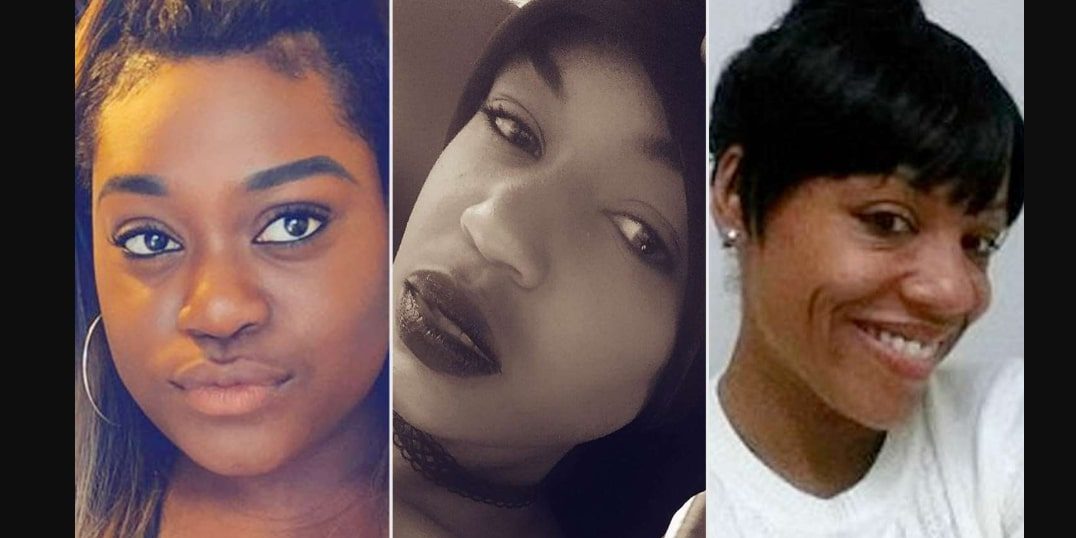In December 2016, Khalil Wheeler-Weaver of New Jersey was arrested and charged with the murders of two women. This was after investigators uncovered substantial evidence tying him to the crimes. As the case unfolded, he was eventually connected to four victims. During his trial, the victims’ families and the one woman who survived his attack gave emotional testimony, urging the court to impose a lengthy sentence. ABC’s ‘Murder Has Two Faces’ explores the details of his crimes and how he was ultimately caught. It offers a closer look at the investigation that led to his conviction.
Khalil Wheeler-Weaver Became a Suspect Because of His Activity on Tagged
Khalil Wheeler-Weaver was born on April 20, 1996, and raised in Orange, New Jersey. He came from a well-respected family and lived in the affluent Seven Oaks neighborhood. Many of his relatives had ties to law enforcement. His stepfather was a detective in East Orange, Essex County, and his uncle had served with the Newark Police Department. Khalil attended Orange High School, where he was known for being quiet and reserved. He kept to himself, concentrated on his studies, and did not participate much in extracurricular activities, giving the impression of an average, unremarkable student.

Some of Khalil’s former classmates recalled him as something of a loner. He was more of a nerd who didn’t draw much attention. He wasn’t particularly popular or socially active, and most peers didn’t think much of him. After graduating from high school, he took a job as a security guard with Sterling Securities. With aspirations to follow in his family’s footsteps, he hoped to one day become a police officer. But instead of pursuing that path, he took a different turn. The unraveling began when 20-year-old Sarah Butler went missing. She had returned home to Montclair, New Jersey, from college and borrowed her mother’s minivan to go out on November 22, 2016. When she didn’t return, her family grew concerned. Sarah’s younger sister, Bassania Daley, along with two close friends, LaMia Brown and Samantha Rivera, refused to sit back and were determined to find out what had happened.
Logging into her computer, they discovered she had been communicating on the social media platform Tagged with a man using the username LilYachtRock. He had offered her $500 in exchange for sex. Alarmed, the three of them created a fake profile to lure the man out. Soon, the latter began insisting on a physical meeting. Rivera contacted the police and informed them that she was communicating with the same person Sarah had last interacted with. When he called her, she recorded the conversation and coordinated with law enforcement to set up a meeting at Panera Bread. The man who showed up driving a BMW was none other than Khali.
Khalil Wheeler-Weaver’s Sole Surviving Victim Testified Against Him
Although police questioned Khalil Wheeler-Weaver about Sarah Butler’s disappearance, they initially had no physical evidence to detain him. He denied knowing anything and was released. However, everything changed on December 1, 2016, when Sarah’s remains were discovered in a nature reserve, covered in leaves and sticks. Detectives soon analyzed Khalil’s cell phone records and realized he had been in the exact location where Sarah had gone missing and again at the site where her body was later found. That wasn’t all. As investigators dug deeper, they were able to link him to two other murders.

His first known victim was 19-year-old Robin Daphne Michele West, who had been found severely burned in an abandoned house in Orange, New Jersey, in September 2016. In October 2016, Khalil claimed the life of 33-year-old Joanne Brown. Like his first victim, Joanne was unhoused at the time of her murder. Her body was discovered a month later in an abandoned house in Orange, New Jersey, with signs of strangulation and restraint. His third known victim was 34-year-old Tiffany Taylor, a former sex worker who had met him through a mutual acquaintance. He picked her up outside a motel, but she said she lost consciousness during the ride. Miraculously, she woke up mid-assault and cleverly convinced Khalil to take her back to the motel.
Once there, she escaped and contacted the police. However, despite providing details of her attack, Tiffany alleged that she wasn’t taken seriously at the time. Across all his crimes, Khalil followed a disturbing pattern: he would solicit women (often from vulnerable backgrounds), offer money for sex, then abduct, bind with duct tape, strangle, and sexually assault them before dumping their bodies in isolated or abandoned locations. Police were ultimately able to connect him to the murders through cell phone records and other digital evidence, which placed him at the locations where each of his victims was last seen and where their bodies were later discovered. A slight trace of his DNA was also recovered from beneath the fingernails of one of the victims and strengthened the case against him.
Khalil Wheeler-Weaver is Serving a Long Sentence Today
Prosecutors argued that Khalil Wheeler-Weaver deliberately targeted women he believed were vulnerable and less likely to be missed. Investigators found further damning evidence on his phone, including internet searches for phrases like “homemade poison to kill humans.” Although there were procedural delays, his trial began in 2019. He was ultimately found guilty of three counts of murder, desecration of human remains, attempted murder, two counts of aggravated sexual assault, aggravated arson, and kidnapping. In October 2021, he was sentenced to 160 years in prison, with parole eligibility only after serving 140 years.

In March 2022, Khalil was formally charged with the October 2016 murder of 15-year-old Mawa Doumbia. Her remains were discovered on May 9, 2019, in an abandoned home in Orange, New Jersey. He later appealed his original 160-year sentence, arguing that it was excessive and that each victim’s case should have been tried separately. However, in January 2024, the appellate court rejected his appeal, upholding the original conviction and sentence. He remains incarcerated under the custody of the New Jersey Department of Corrections, though specific details about his location have not been made publicly available.
Read More: Juan David Ortiz: Where is the Serial Killer Ex-Cop Now?


